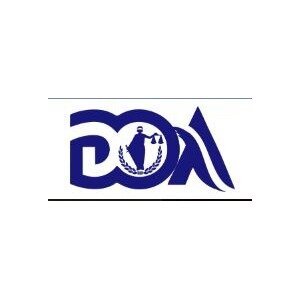Best Bad Faith Insurance Lawyers in Ikoyi
Share your needs with us, get contacted by law firms.
Free. Takes 2 min.
List of the best lawyers in Ikoyi, Nigeria
About Bad Faith Insurance Law in Ikoyi, Nigeria
Bad Faith Insurance Law in Ikoyi, Nigeria concerns itself with the legal proceedings that arise when an insurance company fails to meet their contractual obligations to policyholders, not honoring genuine claims or delaying payment unnecessarily, often called 'acting in bad faith'. In Nigeria, the Insurance Act and other ancillary regulations govern the operations of insurance companies and seek to ensure fairness and transparency in all dealings.
Why You May Need a Lawyer
You might need a lawyer if you suspect your insurance company of malpractices, such as denying a legitimate claim without plausible reason, failing to investigate a claim timely, not paying a claim promptly, or misrepresenting policy terms or law to avoid paying a claim. A lawyer can help interpret the policy details, navigate the legal system in Ikoyi, and ensure your rights are protected throughout the process.
Local Laws Overview
The Insurance Act is the principal law that governs insurance operations in Nigeria, but other laws like the National Insurance Commission Act also play a role. They collectively mandate insurance companies to deal with their policyholders in good faith and crack down on unfair practices. If you suspect bad faith practices, you can invoke these laws to seek redress. Legal remedies may involve compensation for losses incurred and often, punitive damages to discourage such behavior by insurance firms.
Frequently Asked Questions
What constitutes Bad Faith by an Insurance Company?
Bad faith practices include, but are not limited to, unfair denial or delay in settling claims, gross underestimation of claim value, or misinterpretation of the policy terms and conditions to the insurer's benefit.
What evidence is necessary for a Bad Faith suit?
Evidence such as policy documents, correspondence with the insurer, witness reports, and case-specific evidence like medical reports or accident reports are usually necessary.
How long do Bad Faith claims take to resolve?
The duration varies, depending on the specifics of the case, the court's workload, and the parties involved. It could take from a few months to several years.
Do I need a lawyer for a Bad Faith claim?
While individuals can submit claims themselves, the process can like legal and insurance jargon. It may be beneficial to engage the services of an experienced attorney.
What damages are available in a Bad Faith suit?
These typically include compensation for original claim denial and any resulting losses. In some cases, punitive damages may also be awarded.
Additional Resources
The Nigerian Insurers Association (NIA) can provide information and assistance relating to insurance practices in Nigeria. The National Insurance Commission (NAICOM), the regulatory authority for the Nigerian insurance sector, can also serve as a useful resource.
Next Steps
If you believe that your insurer has acted in bad faith, you should first collect all relevant documentation, such as your policy, correspondence, and proof of your claim. Consulting with a professional, preferably a lawyer specializing in insurance disputes can guide you on best next steps. Also, it is recommended to lodge a formal complaint with the relevant regulatory body, such as NAICOM.
Lawzana helps you find the best lawyers and law firms in Ikoyi through a curated and pre-screened list of qualified legal professionals. Our platform offers rankings and detailed profiles of attorneys and law firms, allowing you to compare based on practice areas, including Bad Faith Insurance, experience, and client feedback.
Each profile includes a description of the firm's areas of practice, client reviews, team members and partners, year of establishment, spoken languages, office locations, contact information, social media presence, and any published articles or resources. Most firms on our platform speak English and are experienced in both local and international legal matters.
Get a quote from top-rated law firms in Ikoyi, Nigeria — quickly, securely, and without unnecessary hassle.
Disclaimer:
The information provided on this page is for general informational purposes only and does not constitute legal advice. While we strive to ensure the accuracy and relevance of the content, legal information may change over time, and interpretations of the law can vary. You should always consult with a qualified legal professional for advice specific to your situation.
We disclaim all liability for actions taken or not taken based on the content of this page. If you believe any information is incorrect or outdated, please contact us, and we will review and update it where appropriate.









